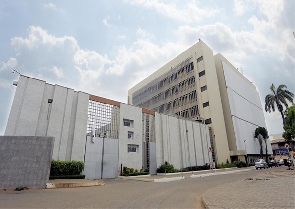Banks operating in Ghana is expected to face pressures on their respective capital position in 2023 as the authority restructure the nation’s debt. In 2022, the nation’s economic profile was downgraded following pressures from debt loads that affected Accra credit profile.
Foreign-owned banks, which account for about half of banking system assets in Ghana, may be better-placed than domestic banks to navigate the highly stressed operating conditions due to parental capital support.
Following a $3 billion lifeline offered by the International Monetary Fund in the latter part of 2022, the local currency which had lost more than 50% reclaimed value while government put up plan to restructure its debt stock.
Reacting to the development, Fitch Ratings said in a report that Ghanaian banks could face significant pressure on their capitalisation due to the restructuring of local-currency (LC) sovereign debt.
Fitch believes banks will suffer large economic losses when they exchange their existing debt for new bonds with lower coupons and longer tenors.
It noted that this could lead to material capital shortfalls at some banks but we expect regulatory forbearance to mitigate the impact, enabling banks to remain compliant with minimum capital requirements.
The two Ghanaian banks rated by Fitch have sizeable capital buffers that should help their ratings withstand the local currency debt exchange, even disregarding regulatory forbearance, according to the note.
Fitch said the local currency debt exchange, launched on 5 December, comes alongside Ghana’s efforts to secure IMF support. Fitch views it as a distressed debt exchange and downgraded Ghana’s Long-Term Local-Currency Issuer Default Rating (IDR) to ‘C’ from ‘CC’ as a result.
Ghana’s Ministry of Finance has stated that the debt exchange is voluntary but analysts expect banks to participate, particularly as the risk-weighting for the old bonds will be increased to 100% from 0%, and non-participating banks will not be eligible for liquidity support from Ghana’s newly created financial stability fund.
It was gathered that Ghanaian Treasury Bills issued, which account for about 15% of the banking system’s securities according to Bank of Ghana data, are excluded from the restructuring.
“Based on the coupon rates and tenors of the new bonds, and assuming a 20% discount rate, we estimate that banks exchanging old LC government bonds will suffer a net present value loss of about 50%”.
This would significantly erode banking system capitalisation, according to Fitch Ratings.
“We expect the authorities to allow flexible accounting treatment to significantly reduce losses, and to ease regulatory capital requirements so that banks can still meet minimum capital ratios”, the rating firm added.
Holders of local currency government bonds were originally given until 19 December to formally respond to the exchange invitation but deadline was extended to 30 December.
Fitch believes there is much opposition to the terms of the exchange, which raises the prospect of a further extension of the deadline and potentially a relaxation of the terms, reducing the losses imposed on creditors.
Recall that on 20 December, the government announced plans to restructure its external sovereign debt, which will add to the pressure on banks’ capital. > Naira, External Reserves Slump amidst Rising FX Demand
Details have yet to be announced but payments on selected external debt, including Eurobonds, commercial term loans, and most bilateral debt, have been suspended.
Fitch views this as the beginning of a sovereign default process and downgraded Ghana’s Long-Term Foreign-Currency IDR to ‘C’ from ‘CC’ accordingly.
Business News of Wednesday, 4 January 2023
Source: dmarketforces.com

















